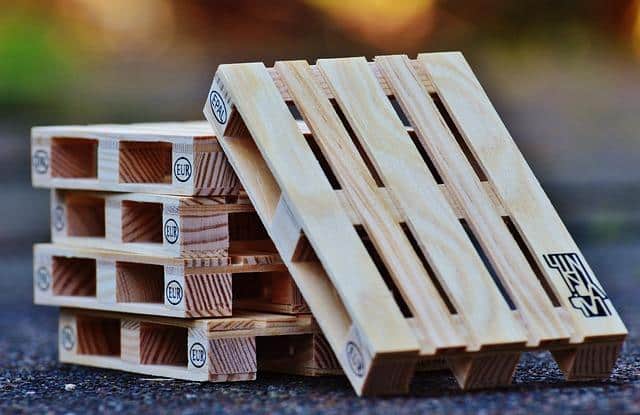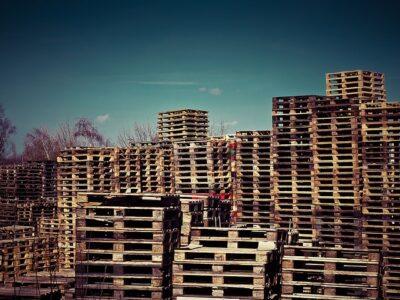With so many needs on the homestead, using pallets to meet some of those needs seems like an easy and inexpensive option. From simple shelving to mini barns for goats, projects around the homestead that can easily be completed with pallets abound. What makes them even more attractive is the fact that most often these pallets are free, or nearly free, in exchange for a prompt pick up.
Pallets are available from any number of retailers, manufacturing facilities, grocers and other places of business. The quality of pallets varies. From debarked hardwood to cardboard-enhanced pressed wood, pallets are made to withstand the rigors of shipping via train, plane and truck.
But have you ever thought where the pallet you picked up last week has been? It is an important question. Pallets are expensive for the companies who use them frequently, so these companies use them until it is no longer safe to do so. The pallet may have been left outside, causing it to harbor mold and insect larvae, or left in a warehouse with undesirable bugs and rodents. In addition to that, spills often occur due to improper handling of materials, resulting in residue that may or may not be toxic. This also provides a breeding ground for bacteria such as E. coli and Listeria, both of which are found present in an alarmingly high percentage of pallets tested.
New Survival Energy Product Makes Every Window A Powerful Solar Charger
How do shipping companies eliminate these problems? For many, the answer to cleaning pallets is to fumigate the pallets with methyl bromide, a pesticide that has restricted use due to its toxic nature, or they may choose to heat-treat each pallet. Methyl bromide is not only an environmental toxin, but is also a known neurotoxin and carcinogen that causes symptoms such as fatigue and acute memory loss. Heat-treated pallets are, of course, free from methyl bromide and its’ less-than-desirable side effects, but exposure to outside elements will allow them to be contaminated again. Pressed wood pallets carry an even higher risk as they may contain formaldehyde in the cardboard component in addition to chemicals used to deter pests and inhibit mold growth. New government standards include labeling pallets for methyl bromide, shown as MB on pallets, or HT for heat-treated ones. This will help you choose a pallet that is safe for you.
Any project on the homestead that will be indoors should be made with clean, heat-treated pallets only. These are not pallets that come from grocery chains or big box stores that are doused with additional chemicals to ensure produce looks fresh and stays pest-free, but those that come from schools, newspapers and similar businesses that use an ample amount of paper. These pallets tend to be very clean and are the most likely to be free from chemicals that leach into the air. Pallets can quickly be made into shelves for storage, or even into an organizer for gardening tools in a potting shed. Sealing the wood reclaimed from pallets helps to reduce the risk of chemicals leaching into the air you breathe, but it is important to note that no pallet is safe enough to use in creating food prep surfaces.
Using pallets outdoors reduces the risk of exposure to methyl bromide, while keeping mold and burrowing insects out of the home. Replace a broken gate, create a feeder for small farm animals or build a fence with pallets. Even larger projects such as fashioning stalls for separating small livestock or building a small structure for livestock can all be accomplished using pallets. Every homestead, no matter what size or where it is located, should have a compost bin. Pallets also make it easy to create a bin with several compartments in a short amount of time.
Related:
Build Just About Anything For Free With Pallets
What advice would you add on using pallets? Share your tips in the section below:
Discover The Secret To Saving Thousands At The Grocery Store. Read More Here.
 Off The Grid News Better Ideas For Off The Grid Living
Off The Grid News Better Ideas For Off The Grid Living






